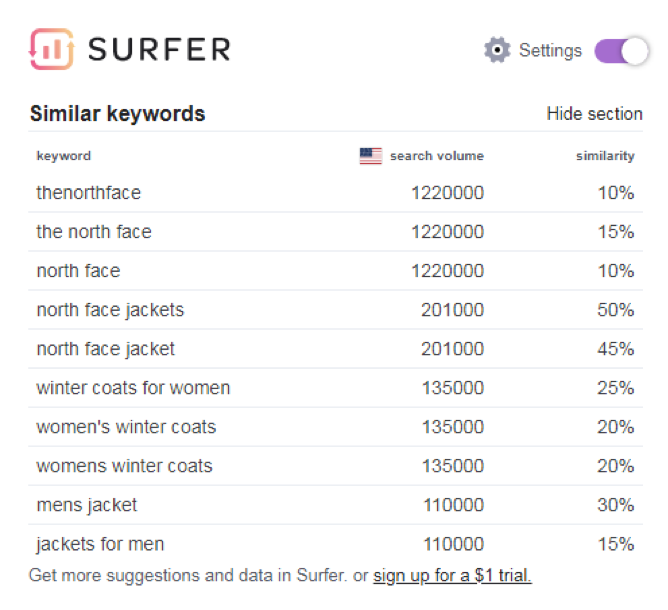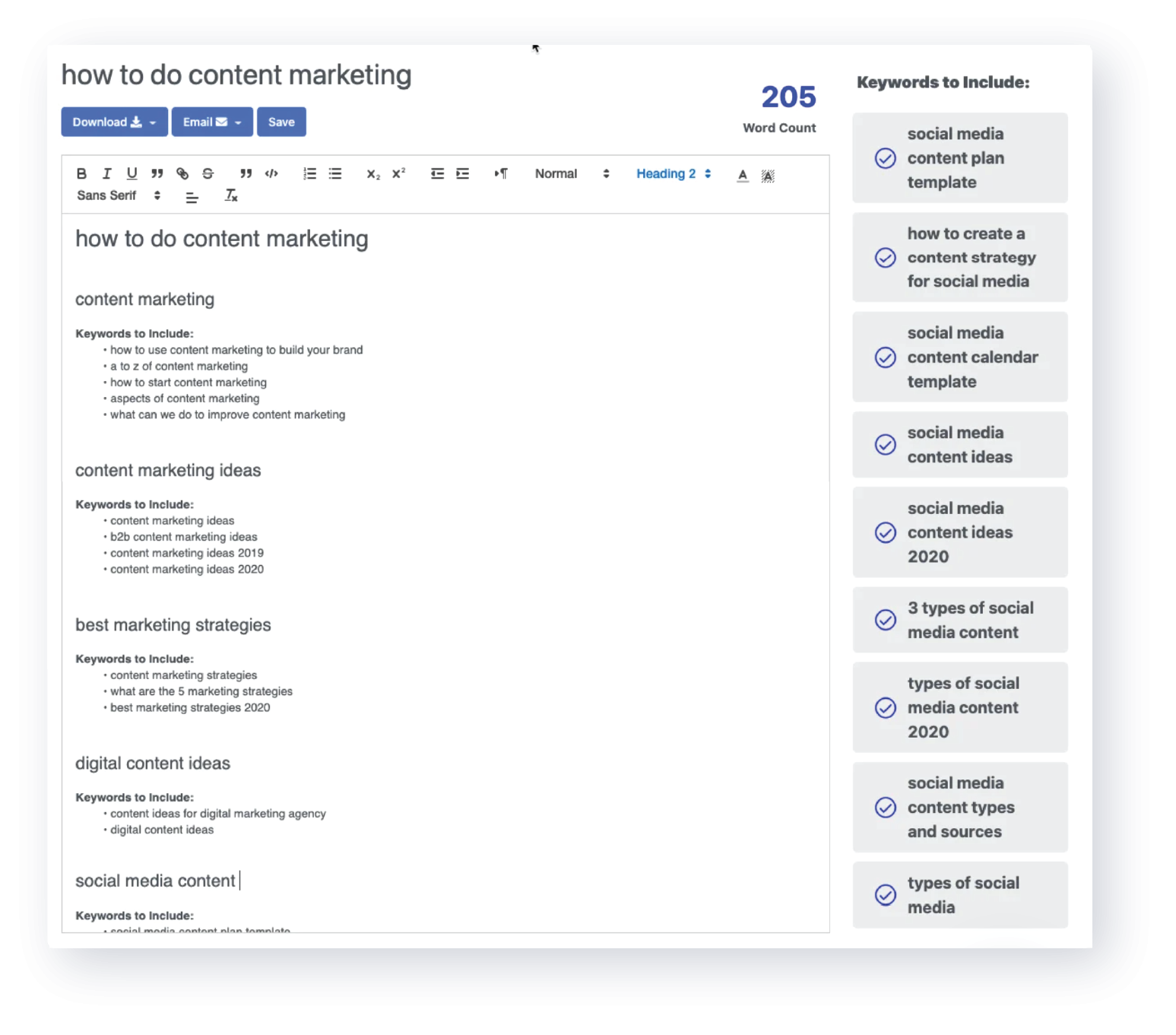Recognized leader in digital transformation, partner at Highbridge, founder of Martech Zone, speaker, author, podcaster & consultant.
Increasing overall business results can start with reviewing and deploying improved analytic tags on your company’s website.
Let’s say your data reveals excellent conversion rates from search engine traffic that are significantly higher than ads or social media. This is not to say that other channels should be ignored, just that the potential for increased sales exists if current landing pages can be optimized and new pages provided with markedly better content than the competition.
A critical tool used in an audit is a search engine optimization (SEO) platform. These platforms monitor paid and organic searches and keyword volumes and provide various tools that provide insights into opportunities to optimize pages. Pages can be optimized using a number of methods, including:
• Optimized infrastructure to improve page speed.
• Optimized titles to increase page indexing for relevant keyword searches.
• Optimized meta descriptions that would better entice search engine users to click through to search engine results pages.
• Optimized page content with improved wording, better captioning and use of formatting, videos and other images.
Of course, there are concerns whether the site will lose ranking or whether the errors and warnings that an SEO platform has uncovered should be prioritized. These concerns are not uncommon, but they are often unwarranted given the context of the overall strategy.
Search engine optimization is often seen by consultants to feed into a search engine’s algorithms, which can be in direct conflict with the desires of the search engine user. At their core, all search engines want to deliver better search engine results to users. As a result, it helps to focus on the user, not the machine.
Some errors and warnings affect users. An example is broken internal links where a user cannot find the information they tried to navigate to. However, many other errors and warnings do not affect users. here are some examples:
• You bookmark an advertising landing page so that it is not indexed in search engines. Google Search Console and many SEO platforms report this as an error when you did it on purpose. You purposely hide different ad offers so they don’t attract organic search traffic.
• You develop a handy landing page with a registration form and it comes with a warning because it has low text-HTML ratios. Adding text would eliminate the very purpose of the design, which is to provide only one way to register and convert.
Search engine marketing platforms provide amazing reports on just about every digital feature on your website. What SEO platforms don’t do, however, is provide visitors with useful information. Here’s an example we keep seeing: websites rank for an irrelevant keyword that generates a ton of traffic that bounces right away and never converts customers. Great for algorithms, prominent on all SEO platforms, but absolutely useless for your business.
In fact, it can even frustrate your visitors. There are some brands in the tech space that do what they can to dominate keyword rankings but don’t offer anything of value on their landing pages. Now I skip over these sites when I’m researching my industry.
Let’s revisit those concerns and rephrase the question to concerns that matter:
• Are current site rankings driving conversion rates from high-value visitors?
• Are errors and recommendations affecting ratings and subsequent purchase behavior?
An ideal first step in any SEO strategy is to ensure tags are properly managed across the entire site to accurately capture campaigns, events, and conversions. You should always work from conversion to search engine to identify the right audience, the right content, and compare the customer to legitimate competitors.
When you understand how your customers or potential customers are using search engines to find the products or services you offer, only then can you optimize your website and content to attract the appropriate search engine users. SEO platforms are essential to help you do this, but only after you are able to link purchase behavior to search engine behavior.
So how do you know what to ignore and what not to? If you are using Google Analytics:
1. Link your Google Ads account to your Google Analytics property.
2. Configure Search Console data in Google Analytics.
3. Make sure all campaigns such as email, app notifications or text messages are properly tagged with the UTM campaign code.
4. Review your default channel definitions in Google Analytics and modify them to ensure that all traffic is correctly classified by channel.
5. Use goals to measure how often users complete specific actions.
Google does not report on the activity of your connected accounts, so tracking organic search visits by keyword for conversion is next to impossible. However, you can use an SEO platform to identify which pages are ranking on your site and for which keywords. At that point, you can use analytics to identify these pages as entry points and start analyzing whether these visitors are engaged and converting.
You now have a much clearer view of how search engine users are finding, engaging and converting on your site. It’s time to work backwards to identify the keywords you can rank for better and the pages you should optimize or create to attract those visitors. This is when your SEO platform can help, but only after you are focused on the visitors that matter – not all search visitors.
The Forbes Agency Council is an invite-only community for executives in successful public relations, media strategy, creative and advertising agencies. do i qualify?
The short answer is that SEO is very effective – not just for generating traffic, but also leads and sales. Don’t worry. The long answer includes search and data, not just empty statements. Most SEOs get very stuck on specific search metrics like SERPs (search engine results page), rankings, and organic traffic.
What are the top three SEO strategies?
Contents

What are the top three SEO strategies?
- Website Optimization #1. Let’s start with what you already have: your website. …
- #2 Regular content publishing. SEO traffic is also influenced by how consistently you publish your blogs. …
- #3 Link Building. …
- Take the uncertainty out of content marketing with DemandJump.
What are the 3 Cs of SEO? Simply put, the fundamentals of SEO can be boiled down to the 3 Cs: content, code and credibility.
Why is SEO not dead?

SEO isn’t dead, it’s just changing. Sure, click-through rates are dropping and Google keeps tweaking its algorithm, but that’s to be expected. Google made this so you can easily target your ideal customer through SEO or paid ads. It used to be a lot harder before they came along.
Is SEO dead in 2022? SEO is not dead in 2022. SEO is still a very powerful digital marketing strategy. SEO will continue to change as Google updates its algorithm, but this is to be expected. If you’re thinking about SEO for your website, now is a good time to start.
Will SEO be obsolete?
As long as search engine results pages exist, SEO will never be obsolete. As long as the algorithm continues to crawl our sites, there will always be a need for SEO professionals. Organic search will always be a channel that can add immense value to any business.
Is SEO still relevant in 2022?
Will SEO still be relevant in 2022? Yes sure. While some SEO tactics that were effective in the past have stopped working, SEO has continued to evolve. Constantly reinventing itself to try to better match user intent, cutting back on spammy and ineffective tactics to become better.
Is SEO still relevant in 2021?
So is SEO still a good investment in 2021 and beyond?! Short answer: YES! SEO is more important than ever! It is still one of the most potent digital marketing strategies that generates long-term results.
Does SEO have a future?
SEO is now considered a long-term investment for businesses, with results showing up gradually over time. SEO is considered almost dead by many web administrators and business owners due to recent search engine algorithms. They believe that SEO is no longer effective and will never produce fruitful results.
Is SEO still relevant in 2021?
So is SEO still a good investment in 2021 and beyond?! Short answer: YES! SEO is more important than ever! It is still one of the most potent digital marketing strategies that generates long-term results.
Will SEO exist in 5 years?
SEO will not be eliminated in the next five years because social media and search engines are likely to merge. Facebook has already started doing this: they average over 1.5 billion searches every day. Twitter did the same; they teamed up in partnership with Google.
Does SEO Still Work 2021?
Make no mistake: SEO is not dying, but it is evolving much more than it was years ago. If you’re debating whether or not to invest in SEO for your business, read on to learn why SEO isn’t dying – but actually thriving – in 2021.
Is SEO still relevant in 2022?
Will SEO still be relevant in 2022? Yes sure. While some SEO tactics that were effective in the past have stopped working, SEO has continued to evolve. Constantly reinventing itself to try to better match user intent, cutting back on spammy and ineffective tactics to become better.
What is the next big thing in SEO?

In addition to all the technical aspects of SEO, understanding user behavior and search intent will also be the next big thing in SEO. A brand must understand what consumers are looking for and provide the exact solution.
What are the new SEO trends for 2022? In 2022, Core Web Vitals tops the list because not only was it a ranking factor, but it continues to get stronger each year. Core Web Vitals are a set of ranking factors that Google uses to see a user’s overall experience on a specific website.
Is SEO still relevant in 2022?
Will SEO still be relevant in 2022? Yes sure. While some SEO tactics that were effective in the past have stopped working, SEO has continued to evolve. Constantly reinventing itself to try to better match user intent, cutting back on spammy and ineffective tactics to become better.
Will SEO be obsolete?
Make no mistake: SEO is not dying, but it is evolving much more than it was years ago. If you’re debating whether or not to invest in SEO for your business, read on to learn why SEO isn’t dying – but actually thriving – in 2021.
How SEO will change in 2022?
By 2022, expect SEO rankings to be more competitive with providing high quality content that is useful to internet users. Content that just tries to fish out its audience by linking to unnecessary sources will not be as effective as it is today.
Is SEO worth it in 2022?
Yes, SEO is worth it – in 2022, in the future, in the past and always. As long as websites and search engines exist, SEO is necessary. SEO 10 years from now will likely be very different from SEO today, but you will always have to make sure your website is sending search engines the right signals so you can be found.
What’s next for SEO?
The future of SEO in 2022 also includes creating evergreen content. Content is a critical component if you want to succeed with SEO in 2022. If you don’t create content, you will have nothing to rank in search results. If you want your content to rank in search results, you need to optimize it for search engines.
What is the future of SEO in 2022?
By 2022, expect SEO rankings to be more competitive with providing high quality content that is useful to internet users. Content that just tries to fish out its audience by linking to unnecessary sources will not be as effective as it is today.
What are the two techniques of SEO?

SEO techniques fall into two broad categories: White Hat SEO – Techniques that search engines recommend as part of good design. Black Hat SEO – Techniques that search engines do not approve of and try to minimize the effect. These techniques are also known as spamdexing.
What are the strategic goals of SEO?

What is the purpose of SEO? The basic purpose of SEO is to increase your presence in relevant online search results so you can get more leads, sales and revenue. In other words, the ultimate goal of SEO is to grow your business online.
